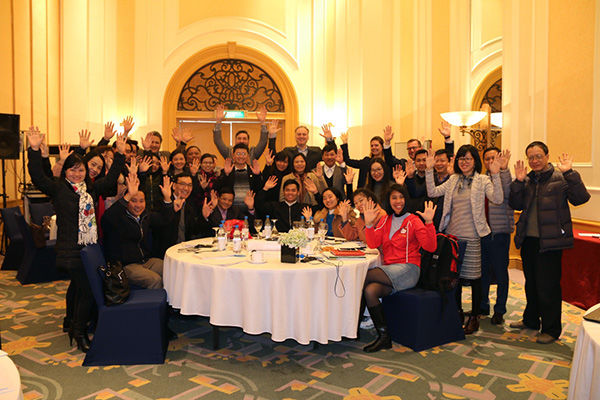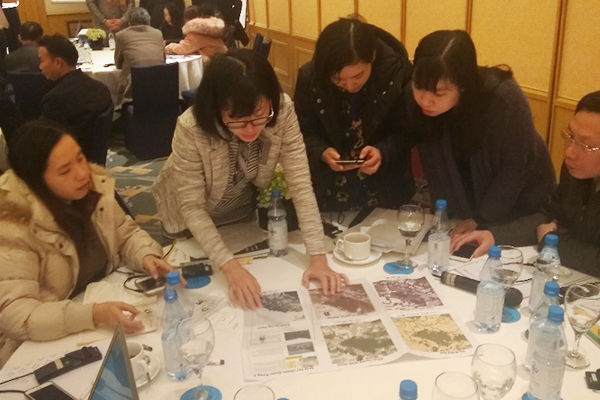Workshop on "Mainstreaming Natural Capital into Decision-Making" in Hanoi
Natural Capital Workshop for Vietnamese Provinces

Group picture of workshop participants
HSF
The focus of the training was on ecosystem services. “Services” that humans derive from natural capital - like clean air, fresh water or the recreational value of an intact forest - are often considered free goods. Addressing this issue, Regional Country Representative Dr. Axel Neubert emphasized the importance of intact ecosystems during his opening speech: “More than 50 percent of the country’s GDP is depending on natural capital” he said.
During the training the participants from different provinces in Vietnam took part in a road planning simulation. The participants were supposed to take costs into consideration that arise from destroying intact forests and rivers. In that way the exercise demonstrated the value of “ecosystem services”; costs arising for the compensation of destroyed environment such as polluted water.

Mrs Nguyen Thu Trang explains the dynamics of the simulation game to a group of representatives of Quang Nam and Ha Tinh province
HSF
HSF Vietnam’s Deputy Director Moritz Michel valued the outcome of the simulation game. He stated that “most of the participating provinces are directly affected by the effects of climate change which often lower people’s livelihoods.” The workshop led to a lively discussion amongst the participants. According to them the training was helpful and enabled them to apply the knowledge gained at their workplace: “The game made it really clear to me how valuable the services retrieved from intact ecosystems are. The environment is often suppressed by economic reasons during planning processes.” Furthermore, natural capital should be seen as an efficient social protection system which is an essential key factor for reaching the Agenda 2030 goals in Vietnam including poverty prevention, good health and decent work.
